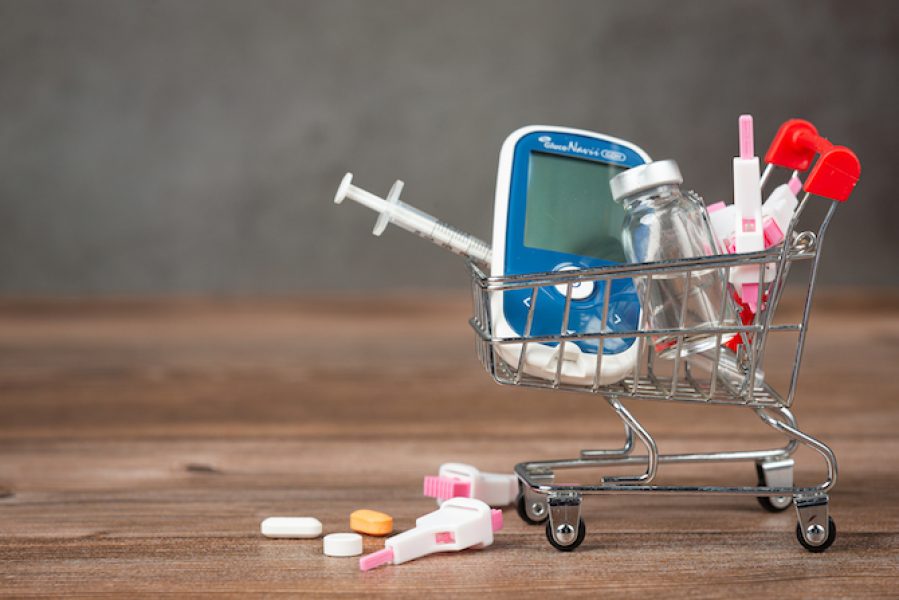Consuming carbohydrates will result in producing Glucose which is a type of Sugar. Glucose is used in the body as a major source of energy for the body’s cells. And this is where insulin comes into play, it will help and allow your body to use glucose for that energy and balance it’s levels.
So what is it? Insulin is a hormone produced by your body in a gland located behind your stomach known as Pancreas.
When there’s too much Glucose in your blood, Insulin will signal your body to store the excess in the liver.
The stored glucose won’t be released until your blood glucose levels decrease, like between meals or when your body is stressed or needs an extra boost of energy.
Insulin is usually used in the treatment of Type 1 and Type 2 Diabetes.
Types of Insulin
All types of insulin have the same effect in which they mimic the normal natural increase and decrease of insulin levels in the body. The only difference is how fast and how long they work.
Below is a brief comparison of different types of insulin:
| Type of insulin | Rapid-acting | Short-acting | Intermediate-acting | Long-acting |
| When it starts working after injection | approximately 15 minutes | 30 to 60 minutes | 1-2 hours | may not start working until 2 hours |
| How long the effect lasts | can last between 3-4 hours | can last 5-8 hours | can last 14-16 hours | can last up to 24 hours or longer |
| When it is used | used before a meal | before a meal | Up to 1 hour prior to a meal | morning on a consistent 24-hour cycle |
Your Doctor or Clinical Pharmacist will instruct you on how to administer the injections yourself. Generally, you can injected under the skin in many different parts of the body, such as:
- thighs
- buttocks
- upper arms
- abdomen
Balancing food & exercise
You should balance Insulin intake with your food to avoid Hypoglycemia (low blood sugar), another recommendation is to avoid intensive exercising (you can read more about our exercise suggestions here), otherwise you may experience a drop in your glucose levels.
If your glucose levels drop too low, you may trigger what is called an insulin reaction which will result you in feeling any of the following:
- Tiredness
- Inability to speak
- Sweating
- Confusion
- Loss of consciousness
- Seizures
- Muscle twitching
- Pale skin
To stop Insulin reaction effects; you can do 2 things:
- Carry at least 15 grams of fast-acting carbohydrates which is almost equal to any of the following:
- 1/2 cup of non-diet soda
- 1/2 cup of fruit juice
- 5 Lifesaver candies
- 2 tablespoons of raisins
- Ask your doctor for a special pen called ‘Glucagon Pen’, it’ll help you in resolving the reaction.






